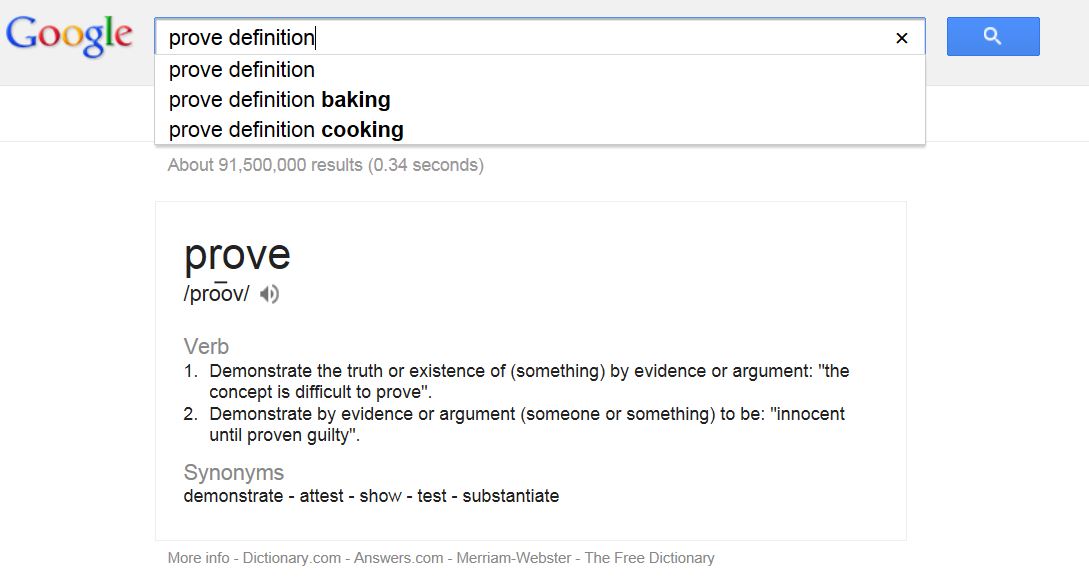1. What does it mean to prove? Concretely in a syllogism
2. The Law or Principle of Noncontradiction - foundation of all science.
3. What is an Analogy - why is it important?
(Posterior Analytics Book I, chapter 2)
Science requires an investigation of the causes, not just an examination of the effects. Thus we reach the idiomatic principle - "every effect requires a cause". Now it would be an error to conclude, therefore God exists as cause of all things. We could at this point state that it’s not true, because it’s not scientific. Thus, the tedious nature of proving God's existence continues to be tedious. What I am here stating is that there can be no proving God's existence without the principle of causality.
On Participation - the Greek term "Methexis" was used by Plato and discarded for all intents and purposes by Aristotle (his pupil). Plato had considered that the Ideas which existed somewhere, Ideas such as "Horse", "German", Red" existed in all their fullness in the nebulous heavens and subsisted as such (think Clifford, the dog as “The Dog” compared to other “dogs” on Earth). This however is problematic since even beyond the nebulous heavens we have not discovered “real” ideas but rather more of subsistent things…and we definitely have not found a big red dog, not even by the name “Clifford”.
Notwithstanding there is an internal force within the logic of participation. Contiguous to the Principle of Noncontradiction we can state with wide and spacious clarity that a whole cannot be a part and vice versa. Now if this is the case, and if for example, only absolute zero is the theoretic temperature at which even the subatomic molecular structure of a whole theoretically individual atom so-to-speak “decomposes” any temperature above it merely participates in the destructive potential of Absolute Zero. The physics behind the theory is sound but thus far idealist. Even if an object reached absolute zero it would but stop existing so that there would be no subject in absolute zero.
Apply the same logic the other way around – in this case a real one. Aquinas (and this is the one of the few times I will mention him in this series. I know how much those who debate the proofs for God existence have gotten tired of Him…understood and respected) Aquinas gave the example that someone entering into a warm room automatically knew that that warmth was merely a participation of the fire within. As a person grows closer to that fire each successive room “participates” more in the source from which it flowed (See Super Ioannem, prologue n.5).
It is unnecessary to prove – as with all true first principles – the principle of participation and the breadth of its functionality can be measured with the prism of analogy. This accepted along with the principle of causation – begged for mainly by modern (and ancient) science. Even within the realm of Economics causation is considered (e.g. Supply and Demand). These binomials – among many other correlative factors - analogous to that of cause and effect are universal to all true scientific knowledge (I could include moral knowledge but that goes beyond the scope of thinking as far as this series goes).
Thus if we are to prove God’s existence – I assert that the final factor within the What it Takes chain of factors is that of the principles of Participation and Causality. Without them we are not proving that God exists.
The first principles of participation and causality are themes that we could consider for the rest of our long lives as philosophers tend to have. I have merely given the first brush strokes to give a taste of what they feel like but I still assert that they are necessary steps towards a rational proof for God’s existence and I say “rational” meaning also “scientific”.
Finally – In the last entry of this series I will sum up this and former entries through a possible valid proof for God’s existence utilizing and highlighting the points mentioned prior to. Also through it I will heavily critique the “proof by Intelligent Design” which has been a poor mainstay of Philosophical Theology in today’s discussion forums.
At a practical level beyond the tediousness and intellectual honesty required (which also implies the Principle of Noncontradiction) it takes courage and patience to prove God’s existence given the reality you see in today’s discussion forums and philosophical agora.
What it Takes to Prove Gods Existence 5 – “Proof” by Intelligent Design, a Critique.


